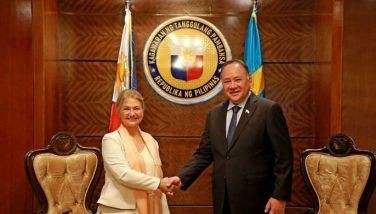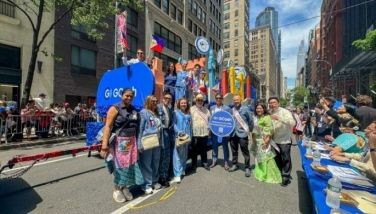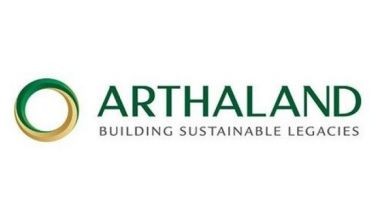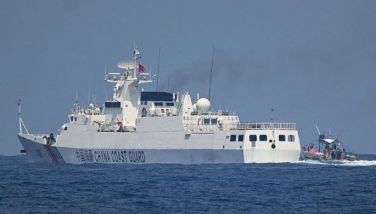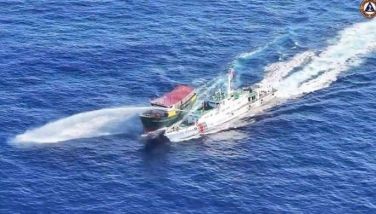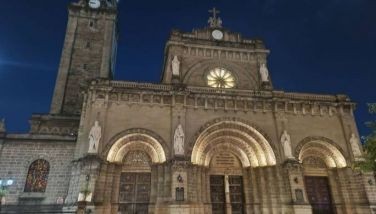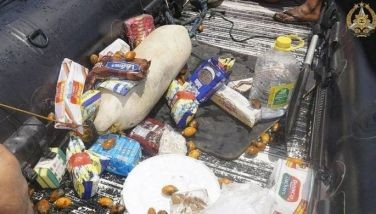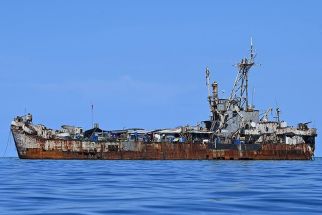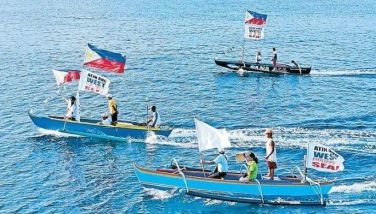RP urges Myanmar to free Suu Kyi
January 15, 2007 | 12:00am
CEBU — The Philippines called on Myanmar yesterday to release opposition leader Aung San Suu Kyi and take "concrete" steps toward democracy.
President Arroyo, who held a closed-door meeting with Myanmar Prime Minister Soe Win on the sidelines of the 12th Association of Southeast Asian Nations (ASEAN) summit Saturday, expressed hope the extension of Suu Kyi’s house arrest last May "would be the last."
Myanmar has vowed to accelerate democratic reforms by following its "roadmap" to democracy, which has been criticized by other countries as a sham.
Mrs. Arroyo urged Myanmar to translate its policy of constructive engagement into concrete initiatives that would yield real benefits for the people of Myanmar.
During the bilateral talks, the President told Win that there is tremendous concern in the international community about 61-year-old Nobel peace prize winner Suu Kyi’s condition, and expressed hope that her request for more regular medical attention would be granted.
Her comments to Win were stronger than ASEAN’s official position. In their post-summit statement, ASEAN leaders encouraged fellow member Myanmar to "make greater progress towards national reconciliation." They called for the release of detainees but did not name the democracy leader.
The President emphasized that the Philippines’ chairmanship of ASEAN, with its focus on the human dimension of regional integration, offers a fresh opportunity for the regional bloc to reexamine its approach to the situation in Myanmar.
Although Myanmar’s continuing engagement with the United Nations is an encouraging sign that the two sides recognize the need to work together, Mrs. Arroyo said this engagement must yield more concrete and meaningful results than what came out of UN Undersecretary General for Political Affairs Ibrahim Gambari’s two visits there.
She noted the progress made by Myanmar against money laundering, opium cultivation and forced labor and said it is important to build on these advances and avoid setbacks such as the arrest of five activists last September.
Mrs. Arroyo offered her country’s help to advise Myanmar on how to deal with displaced villagers — a key problem in Mindanao because of a raging Marxist rebellion and a Muslim separatist insurgency in the region.
"The Philippines has gained valuable lessons from our experience in Mindanao in promoting human security and development in areas touched by conflict," said a briefing paper prepared for Mrs. Arroyo.
"If the government of Myanmar would let us, we are willing to play a role in alleviating the humanitarian problems faced by Myanmar," the briefing paper said.
The Karen ethnic minority group has been fighting for autonomy since Burma gained independence from Britain after World War II. Their fight, under the banner of the Karen National Union, is one of the world’s longest-running insurgencies. Myanmar was formerly known as Burma.
ASEAN’s offer, which was not attached to any political conditions, was welcomed by Win, a Filipino diplomat said.
The President offered to Myanmar ASEAN’s help in alleviating the humanitarian problems such as the spread of HIV/AIDS, tuberculosis and malaria; internal displacement due to conflict between government forces and insurgents; and poverty.
Win, according to a diplomatic source, explained his country’s "roadmap" to democracy and what he termed internal problems. Rights groups say the roadmap is a sham to deflect pressure to democratize.
Myanmar’s current junta took power in 1988 after crushing a pro-democracy movement. In 1990, it refused to hand over power when Suu Kyi’s National League for Democracy won a landslide election victory. Since then, she has been in and out of detention, and she is currently kept in near-solitary confinement at her home.
Officials said the Philippines also called on Myanmar to be more cooperative if it wished to get continued help from ASEAN, especially during visits to the country.
Myanmar did not allow Malaysia’s foreign minister to meet with Suu Kyi and other pro-democracy leaders during the official’s visit to Yangon and was not even taken to the new capital, Naypyidaw.
Malaysia, which chaired ASEAN last year, was slighted and the regional bloc called on Myanmar to open up if officials from another ASEAN member country pay a visit.
Foreign Affairs Secretary Alberto Romulo visited Myanmar before the Philippines assumed chairmanship of the ASEAN this year, but the visit proved unproductive.
"So the position now is if Myanmar will make an invitation for a visit, it should allow access to the people and places that must be visited," a source said.
Romulo stressed that the Philippines supports the call made by UN Secretary-General Ban Ki-moon last Jan. 8 urging Myanmar authorities to go beyond this first step in the roadmap by releasing political prisoners.
Myanmar transferred its seat of government on Nov. 6, 2005 to a site near the city of Pyinmana, which is around 400 kilometers north of Yangon. The new administrative capital has been renamed "Naypyidaw" or the "Royal City of the Sun."
Deputy Foreign Minister U Kyaw Thu explained in a diplomatic briefing in November 2005 that the government decided to move the seat of administration to effectively manage the task of building a modern and united nation.
Myanmar’s leader, Senior General Than Shwe, skipped the ASEAN summit in order to focus on the ongoing National Convention and the development in the country’s new capital, Naypyidaw.
The National Convention has been drafting guidelines for a new constitution, the first of seven steps outlined in a "roadmap to democracy" which the junta says will culminate in free elections.
Critics consider the proceedings a sham because most of the delegates are hand-picked, the military rubber-stamps the process, and because Suu Kyi is barred from the meetings.
Myanmar said that 2007 is a critical year for them and its government wants to devote its full attention to the process.
Myanmar has assured ASEAN leaders it would accelerate democratic reforms as Malaysian Prime Minister Abdullah Badawi expressed support for the decision of China and Russia not to elevate the case to the UN Security Council (UNSC), as suggested by the United States.
"I think it’s a matter of principle," Abdullah said in a press conference Saturday afternoon when asked for his reaction to China and Russia’s move to veto the proposed UNSC resolution.
China and Russia used a rare double veto in the United Nations Security Council (UNSC) on Friday to sink a US resolution that would have called on the junta to free the estimated 1,000 political prisoners in the impoverished country.
China is a major economic and political supporter of Myanmar. It defended its veto by saying that the situation was not a "threat to international security" — the UN charter’s language to justify UNSC action.
Several ASEAN members had also expressed unhappiness about the UN resolution.
The UN General Assembly has also regularly condemned Myanmar, formerly Burma, over human rights abuses.
"The situation in Myanmar is impacting upon the image and credibility of ASEAN," Badawi told a meeting of the bloc’s foreign ministers in July.
Abdullah said all leaders, including Myanmar, agreed to have a mini-constitution that would allow the grouping to impose sanctions and even expel members who would not promote democracy, human rights, good governance and other basic freedoms.
He expressed confidence that ASEAN would be able to hurdle all the problems in coming up with an ASEAN Charter as it had done before, despite Myanmar’s situation.
Abdullah said Myanmar’s case was not a "security issue" that would have an impact in the region.
"Therefore, that can’t be a subject for the Security Council but it’s a subject for other forums," he said.
The ASEAN leaders, in the chairperson’s statement released after their summit, also asserted the regional bloc’s responsibility for Myanmar, saying "we agreed on the need to preserve ASEAN’s credibility as an effective regional organization by demonstrating a capacity to manage important issues within the region."
The statement also encouraged the military-ruled nation to "make greater progress towards national reconciliation." It called for the release of detainees and for effective dialogue with all parties concerned.
The statement had been promised for Saturday during the summit, and the delay underlined lingering doubts about ASEAN’s political will to hold its own members to account.
The bloc is preparing a charter to transform it from an informal group that operates by consensus to a rules-based entity like the European Union, but one stumbling block has been how much pressure it can put on nations like Myanmar.
Myanmar’s generals, who have ruled the country since 1962 and kept democracy activist and Nobel peace laureate Suu Kyi in detention for much of the past two decades, have repeatedly pledged to move towards democracy.
More than half of foreign investment in Myanmar comes from fellow ASEAN members. The body has long been under fire for what activists see as its weak stance and some members admit Myanmar is an international embarrassment. — With Aurea Calica, AFP
President Arroyo, who held a closed-door meeting with Myanmar Prime Minister Soe Win on the sidelines of the 12th Association of Southeast Asian Nations (ASEAN) summit Saturday, expressed hope the extension of Suu Kyi’s house arrest last May "would be the last."
Myanmar has vowed to accelerate democratic reforms by following its "roadmap" to democracy, which has been criticized by other countries as a sham.
Mrs. Arroyo urged Myanmar to translate its policy of constructive engagement into concrete initiatives that would yield real benefits for the people of Myanmar.
During the bilateral talks, the President told Win that there is tremendous concern in the international community about 61-year-old Nobel peace prize winner Suu Kyi’s condition, and expressed hope that her request for more regular medical attention would be granted.
Her comments to Win were stronger than ASEAN’s official position. In their post-summit statement, ASEAN leaders encouraged fellow member Myanmar to "make greater progress towards national reconciliation." They called for the release of detainees but did not name the democracy leader.
The President emphasized that the Philippines’ chairmanship of ASEAN, with its focus on the human dimension of regional integration, offers a fresh opportunity for the regional bloc to reexamine its approach to the situation in Myanmar.
Although Myanmar’s continuing engagement with the United Nations is an encouraging sign that the two sides recognize the need to work together, Mrs. Arroyo said this engagement must yield more concrete and meaningful results than what came out of UN Undersecretary General for Political Affairs Ibrahim Gambari’s two visits there.
She noted the progress made by Myanmar against money laundering, opium cultivation and forced labor and said it is important to build on these advances and avoid setbacks such as the arrest of five activists last September.
Mrs. Arroyo offered her country’s help to advise Myanmar on how to deal with displaced villagers — a key problem in Mindanao because of a raging Marxist rebellion and a Muslim separatist insurgency in the region.
"The Philippines has gained valuable lessons from our experience in Mindanao in promoting human security and development in areas touched by conflict," said a briefing paper prepared for Mrs. Arroyo.
"If the government of Myanmar would let us, we are willing to play a role in alleviating the humanitarian problems faced by Myanmar," the briefing paper said.
The Karen ethnic minority group has been fighting for autonomy since Burma gained independence from Britain after World War II. Their fight, under the banner of the Karen National Union, is one of the world’s longest-running insurgencies. Myanmar was formerly known as Burma.
ASEAN’s offer, which was not attached to any political conditions, was welcomed by Win, a Filipino diplomat said.
The President offered to Myanmar ASEAN’s help in alleviating the humanitarian problems such as the spread of HIV/AIDS, tuberculosis and malaria; internal displacement due to conflict between government forces and insurgents; and poverty.
Win, according to a diplomatic source, explained his country’s "roadmap" to democracy and what he termed internal problems. Rights groups say the roadmap is a sham to deflect pressure to democratize.
Myanmar’s current junta took power in 1988 after crushing a pro-democracy movement. In 1990, it refused to hand over power when Suu Kyi’s National League for Democracy won a landslide election victory. Since then, she has been in and out of detention, and she is currently kept in near-solitary confinement at her home.
Officials said the Philippines also called on Myanmar to be more cooperative if it wished to get continued help from ASEAN, especially during visits to the country.
Myanmar did not allow Malaysia’s foreign minister to meet with Suu Kyi and other pro-democracy leaders during the official’s visit to Yangon and was not even taken to the new capital, Naypyidaw.
Malaysia, which chaired ASEAN last year, was slighted and the regional bloc called on Myanmar to open up if officials from another ASEAN member country pay a visit.
Foreign Affairs Secretary Alberto Romulo visited Myanmar before the Philippines assumed chairmanship of the ASEAN this year, but the visit proved unproductive.
"So the position now is if Myanmar will make an invitation for a visit, it should allow access to the people and places that must be visited," a source said.
Romulo stressed that the Philippines supports the call made by UN Secretary-General Ban Ki-moon last Jan. 8 urging Myanmar authorities to go beyond this first step in the roadmap by releasing political prisoners.
Myanmar transferred its seat of government on Nov. 6, 2005 to a site near the city of Pyinmana, which is around 400 kilometers north of Yangon. The new administrative capital has been renamed "Naypyidaw" or the "Royal City of the Sun."
Deputy Foreign Minister U Kyaw Thu explained in a diplomatic briefing in November 2005 that the government decided to move the seat of administration to effectively manage the task of building a modern and united nation.
The National Convention has been drafting guidelines for a new constitution, the first of seven steps outlined in a "roadmap to democracy" which the junta says will culminate in free elections.
Critics consider the proceedings a sham because most of the delegates are hand-picked, the military rubber-stamps the process, and because Suu Kyi is barred from the meetings.
Myanmar said that 2007 is a critical year for them and its government wants to devote its full attention to the process.
Myanmar has assured ASEAN leaders it would accelerate democratic reforms as Malaysian Prime Minister Abdullah Badawi expressed support for the decision of China and Russia not to elevate the case to the UN Security Council (UNSC), as suggested by the United States.
"I think it’s a matter of principle," Abdullah said in a press conference Saturday afternoon when asked for his reaction to China and Russia’s move to veto the proposed UNSC resolution.
China and Russia used a rare double veto in the United Nations Security Council (UNSC) on Friday to sink a US resolution that would have called on the junta to free the estimated 1,000 political prisoners in the impoverished country.
China is a major economic and political supporter of Myanmar. It defended its veto by saying that the situation was not a "threat to international security" — the UN charter’s language to justify UNSC action.
Several ASEAN members had also expressed unhappiness about the UN resolution.
The UN General Assembly has also regularly condemned Myanmar, formerly Burma, over human rights abuses.
"The situation in Myanmar is impacting upon the image and credibility of ASEAN," Badawi told a meeting of the bloc’s foreign ministers in July.
Abdullah said all leaders, including Myanmar, agreed to have a mini-constitution that would allow the grouping to impose sanctions and even expel members who would not promote democracy, human rights, good governance and other basic freedoms.
He expressed confidence that ASEAN would be able to hurdle all the problems in coming up with an ASEAN Charter as it had done before, despite Myanmar’s situation.
Abdullah said Myanmar’s case was not a "security issue" that would have an impact in the region.
"Therefore, that can’t be a subject for the Security Council but it’s a subject for other forums," he said.
The ASEAN leaders, in the chairperson’s statement released after their summit, also asserted the regional bloc’s responsibility for Myanmar, saying "we agreed on the need to preserve ASEAN’s credibility as an effective regional organization by demonstrating a capacity to manage important issues within the region."
The statement also encouraged the military-ruled nation to "make greater progress towards national reconciliation." It called for the release of detainees and for effective dialogue with all parties concerned.
The statement had been promised for Saturday during the summit, and the delay underlined lingering doubts about ASEAN’s political will to hold its own members to account.
The bloc is preparing a charter to transform it from an informal group that operates by consensus to a rules-based entity like the European Union, but one stumbling block has been how much pressure it can put on nations like Myanmar.
Myanmar’s generals, who have ruled the country since 1962 and kept democracy activist and Nobel peace laureate Suu Kyi in detention for much of the past two decades, have repeatedly pledged to move towards democracy.
More than half of foreign investment in Myanmar comes from fellow ASEAN members. The body has long been under fire for what activists see as its weak stance and some members admit Myanmar is an international embarrassment. — With Aurea Calica, AFP
BrandSpace Articles
<
>
- Latest
- Trending
Trending
Latest
Trending
Latest
Recommended
June 3, 2024 - 6:00am






